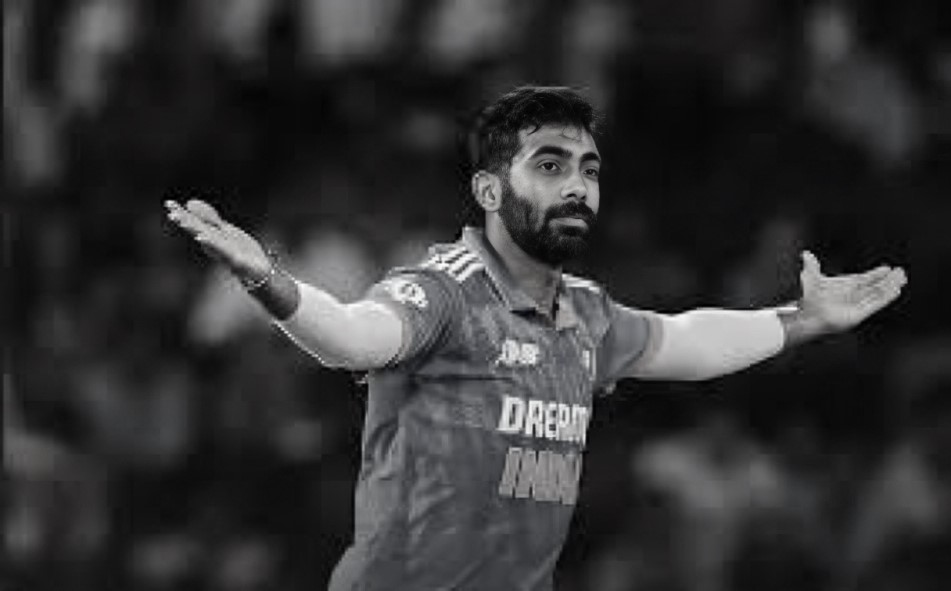
The much-anticipated Champions Trophy, slated to be held in Pakistan and the United Arab Emirates from February 19th to March 9th, has been dealt a significant blow with the news of Jasprit Bumrah’s unavailability for the tournament. The premier Indian fast bowler has been unable to recover from a nagging back injury that has kept him out of action since the Sydney Test against Australia earlier this year. Bumrah’s absence is a considerable setback for the Indian team, as his express pace and death-bowling prowess are invaluable assets in any limited-overs competition. The BCCI, along with the team management, had held out hope for Bumrah’s recovery, even delaying the finalization of the squad until the eleventh hour. However, despite the dedicated efforts of the medical staff at the National Cricket Academy (NCA) in Bengaluru, the pacer’s body hasn’t responded positively enough to the intensive rehabilitation program. This unfortunate development leaves a void in India’s bowling attack and forces the team to recalibrate its strategies for the crucial tournament. The decision to exclude Bumrah underscores the seriousness of his injury and the long-term view the BCCI is taking with regards to his career. Rushing him back into action could have aggravated the injury, potentially jeopardizing his future participation in crucial events.
Bumrah’s injury saga began during the Border-Gavaskar Trophy against Australia, where he experienced discomfort in his back during the New Year’s Test at the Sydney Cricket Ground. He was unable to bowl in the second innings of that Test and has been on the sidelines ever since. Although he was initially included in the squad for the three-match ODI series against England, he did not feature in the first two matches, further fueling speculation about his fitness. The BCCI’s decision to wait until the last possible moment before announcing the Champions Trophy squad highlighted their desire to give Bumrah every opportunity to prove his fitness. Head coach Gautam Gambhir, captain Rohit Sharma, and chief selector Ajit Agarkar were all reportedly involved in the discussions surrounding Bumrah’s availability, underscoring the importance of this decision. The fact that Bumrah hasn’t played a competitive game since the Sydney Test raises questions about the initial assessment of his injury and the subsequent management of his rehabilitation. The NCA’s involvement further emphasizes the complexities of dealing with such injuries, especially for a player as crucial to the national team as Bumrah.
In the wake of Bumrah’s withdrawal, the Indian team has named Harshit Rana as his replacement in the squad. Rana, who made his T20I debut as a concussion substitute, impressed with his performance in his ODI debut against England in Nagpur, taking three wickets. While Rana is a promising talent, filling the shoes of a bowler like Bumrah is a daunting task. The young pacer will need to quickly adapt to the pressures of international cricket and deliver consistent performances on the big stage. The team management will be hoping that Rana can provide the necessary support to the other bowlers and contribute to India’s chances in the tournament. His inclusion is a testament to his recent performances and a show of faith from the selectors. However, the absence of Bumrah’s experience and variations will undoubtedly be felt by the team. The pressure will be on other fast bowlers like Mohammed Shami and Arshdeep Singh to step up and lead the attack.
The Indian squad for the Champions Trophy has also seen another change, with Varun Chakravarthy replacing Yashasvi Jaiswal. Chakravarthy’s inclusion bolsters India’s spin department, which now comprises five spinners: Axar Patel, Washington Sundar, Ravindra Jadeja, Kuldeep Yadav, and Chakravarthy himself. This indicates a strategic shift towards spin-heavy tactics, potentially influenced by the conditions in Pakistan and the UAE. Chakravarthy’s recent performances in the T20Is against England, where he won the Player of the Series award, have earned him a spot in the ODI squad. His variations and ability to deceive batsmen with his mystery spin will be a valuable asset for India in the tournament. Jaiswal, who played in the Nagpur ODI against England before being left out of the Cuttack game, will now be a part of the non-traveling reserves along with fast bowler Mohammed Siraj and all-rounder Shivam Dube. This decision highlights the selectors’ preference for experience and specialized skills in the main squad for a high-profile tournament like the Champions Trophy.
India’s campaign in the Champions Trophy begins against Bangladesh on February 20th at the Dubai International Cricket Stadium. The highly anticipated clash against arch-rivals Pakistan is scheduled for February 23rd. Before departing for Dubai, the Indian team will play the third and final ODI against England on Wednesday, February 12th, at the Narendra Modi Stadium in Ahmedabad. This match will serve as the final opportunity for the players to fine-tune their preparations and for the team management to finalize their strategies for the Champions Trophy. The absence of Bumrah and the inclusion of Chakravarthy represent significant changes to the original squad, and the team will need to adapt quickly to these changes. The Champions Trophy is a prestigious tournament, and India will be aiming to put up a strong performance despite the setback of Bumrah’s injury. The team’s batting strength, coupled with a varied spin attack, gives them a good chance to go deep in the tournament. However, the fast bowling department will need to prove their mettle in Bumrah’s absence.


